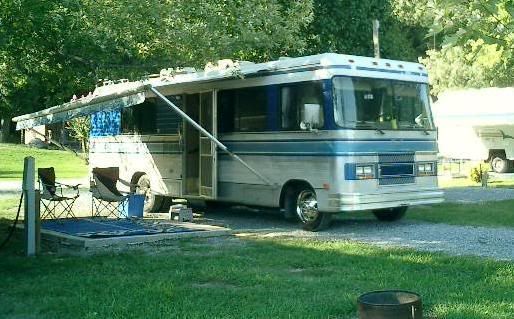Page 1 2
Go to...  | Start A New Topic  | Search  | Notify  | Tools  | Reply To This Topic  |  |
 6/12 6/12Formally known as "Humbojb"  |
Hey Rusty, I recently read that all the oil companies are leaving out the wear preventatives in their motor oil in order to meet federal regulations of some sort. Supposedly, Shell Rotella is not. I'm using Mobil 1 in my vehicles. Should I switch to Rotella? I didn't think it was a synthetic. Thanks Jim
| |||||||||||
|
Captain Doom |
I suspect the rumor is based on the fact that contemporary motor oils have virtually all ashless (liquid) detergent-dispersants. For years they had a blend of ash-type (calcium and barium ashes), made of finely ground powders of those ashes. The ash-type detergents were especially effective in neutralizing sulfuric acid. However, neither was anti-wear; zinc diorgano-dithyophosphate is. I don't know that zinc compounds are out. Ashless detergents coat contaminate particles while ash-type chemically neutralize them. With the universal spread of ULSD, sulfuric acid contamination will be nearly eliminated. Anyway, gaso engines generally operate in a far less stressful environment, and the demands are different. I use Mobil 1 in my car, Rotella T in the truck and RV. I wouldn't recommend switching; there's no reason to Rusty '94 28' Breakaway: MilSpec AMG 6.5L TD 230HP Nelson and Chester, not-spoiled Golden Retrievers Sometimes I think we're alone in the universe, and sometimes I think we're not. In either case the idea is quite staggering. - Arthur C. Clarke It was a woman who drove me to drink, and I've been searching thirty years to find her and thank her - W. C. Fields | |||
|
 6/12 6/12Formally known as "Humbojb"  |
You think it's OK to stick with Mobil 1 in the Barth 454?
| ||||||||||||
|
| First Month Member |
The issue out there is the reduction of ZDDP in oils. With roller lifters, everyone agrees things are OK. With flat lifters, there is a diversity of opinion and reported experience. . 84 30T PeeThirty-Something, 502 powered | |||
|
How long can you go between oil changes with Mobil-1 in a gas engine that's in a car that's driven under average conditions? Anyone tried synthetic Penzoil? | ||||
|
 8/09 8/09 |
I've used a variety of synthetics in vehicles I've owned, including the RV. In the RV I change the oil once a year regardless of mileage (which is usually between 500-1000 miles). My daily driver is a '99 Olds Aurora, and like most GM cars it has an oil life monitor that basically tells you when to change the oil based on engine use, heat over time, speeds traveled, etc. It's a very smart system and usually doesn't direct me to change oil until sometime between 6000-7000 miles. The kicker is, that's the car's recommendation based on conventional (dino) oil and not synthetic. So, usually using Mobil 1 (but sometimes Penzoil Platinum or generic synthetic), I worked my way up to 10,000 mile oil changed. Now I've switched to Mobil 1 Extended Protection, which is rated for 1 year / 15,000 miles, whichever comes first. I still change the oil filter once or twice during that interval. Get the stuff on sale and you can save some serious money over the old adage of dealership oil changes every 3,000 miles. I'm tempted to upgrade again to Amsoil or Royal Purple which are both highly recommended in many oil discussion circles. If you want a real education on all things oil, check out this forum: www.bobistheoilguy.com | |||
|
Captain Doom |
One can go longer on synthetic than standard oils, because the base stock is homogenous - and being synthesized, contains no contaminants. The rule-of-thumb is that the oils needs changing when the additive package is depleted. The fewer items to contaminate the oils, the longer it can go. When I was an oil peddler, local cartage trucks usually changed oil at 8,000 miles. OTR tractors with the same drivetrain (Cummins 250, RoadRanger 11-13 speed) changed at 24-48,000 miles. Contaminates generally have little or no effect unless there's water present. Idling is bad for any engine, worse so in diesels, because the temperature doesn't get up to spec quickly, and so the moisture from condensate is there longer. This is why I tell folks not to idle any longer than necessary - once the engine's firing on all cylinders, GO! Pennzoil is owned by Shell, and Shell pioneered synthetics, so I would guess it's a good product. The synthetic base stock is one thing, the additive package is the most important. IMHO, the best diesel motor oils, synthetic or standard, are by Mobil, Shell, and Kendall. Anyway, with a synthetic in a fuel injected gaso engine, I'd change every 6,000/1 yr, if carbureted, 4,000/6 mo. but the manufacturers' recommendations are the most reliable - they don't come up with those recommendations on a whim. Note that 80% of cars operate under "severe conditions" based on most owner's manuals. In any event, I heard somewhere My current opinion is that synthetics are wasted in diesels because as noted, depletion of the additive package is the reason to change, and it'll deplete long before the base stock is damged. I say current, because logically the switch to ULSD will minimize the entry of the worst contaminant, sulfur, but I've seen no reports. Rusty '94 28' Breakaway: MilSpec AMG 6.5L TD 230HP Nelson and Chester, not-spoiled Golden Retrievers Sometimes I think we're alone in the universe, and sometimes I think we're not. In either case the idea is quite staggering. - Arthur C. Clarke It was a woman who drove me to drink, and I've been searching thirty years to find her and thank her - W. C. Fields | |||
|
| First Month Member |
Most of my car and boat engines have roller tappets, but my every day motorcycle has DOHC bucket lifters. I have been using a little ZDDP to protect what are essentially flat tappets and all is well. this is probably overkill, as a DOHC bucket engine is not as vulnerable as a flat tappet pushrod engine. On a recent oil change I threw in an antimony additive instead. Oil temps went down. No controlled experiment, since temps vary, but every time I checked, oil was cooler. Of course, antimony has been used in bearings since forever. My grandfather kept big crystalline chunks of it around for both bullet casting and bearing pouring. I still have some of it. I wonder where he got so much. Anyway, since this is essentially adding bearing metal to the oil, it seems fairly innocuous. Our plant maint guys at work put a little in each 90 degree gearbox for all the baggage conveyor belt systems. There are hundreds. This was before temp guns, but they did one of a pair (each driven by the same motor and moving the same belt) and left the other one alone. The temp difference was obvious by touching. . 84 30T PeeThirty-Something, 502 powered | |||
|
FKA: noble97monarch 3/12 3/12 |
This sounds informative, but I can't vouch for it's absolute truth. I'm sure Rusty will edit if debunked.
 Formerly: 1997 Barth Monarch Now: 2000 BlueBird Wanderlodge 43' LXi Millennium Edition DD Series 60 500HP 3 stage Jake, Overbuilt bike lift with R1200GS BMW, followed by 2011 Jeep Wrangler Unlimited, “I haven’t been everywhere, but it’s on my list.” | |||
|
| The Old Man and No Barth |
Way back in the late '30 or early '40s, Standard Oil of California, which morphed into Chevron, which morphed into Chevron/Texaco, came out with a new motor oil branded "RPM." The brand exists today, much modified, I'm sure, from the original formulation, but when it came out, it was said the letters "RPM" stood for "Ruins Perfect Motors." People have always resisted change. Motor heads are no different, & we are reluctant to substitute the new and untried, for that which has been proven. It's a sub-set of the, "If it ain't broke, don't fix it," rule. | |||
|
| First Month Member |
As a kid, I heard mechanics and hot rodders talk about detergent oil loosening up so much sludge that the engine failed. Perhaps that RPM oil was an early detergent oil. By pass filters were the norm then, and you had to scoop sludge out of the filter canister when replacing the element, and I got to see first hand the amount of sludge the detergent oils loosened up when first used. Many folks resisted detergent oils, but hydraulic lifters ran quieter with cleaner oil. It used to be standard to introduce detergent oil into an engine gradually. One quart each oil change until, at the fourth or fifth oil change, you were running full detergent oil. This, of course, was back when Kendall's logo was a hand holding up two fingers, indicating that it was the Two Thousand Mile Oil.  . 84 30T PeeThirty-Something, 502 powered | |||
|
 |
My Studebaker has a flat head 6 with solid lifters so I am doubly screwed. I really baby it and put in a bottle of STP with every oil change. There is a product (oil additive) that you can get from the auto parts store for newly rebuilt engines that has zinc in it. Many of my friends with oler style engines use this to prevent lifter and cam shaft wear. W4JDZ | |||
|
Captain Doom |
This was a complete misunderstanding. The actual rule was to run the rebuilt engine on NON-DETERGENT oil, as the detergent-bearing oil, with the antiwear properties, wouldn't allow proper breakin. This was especially critical with chromed or nitrided cylinders.
STP is a mixture of bright-stock (napthenic) oil and polyisobutylene, which was one of the first viscosity index improvers. At lower temps, the molecules were coiled up, and acted like small molecules, meaning low viscosity. At higher temps, the molecules uncoiled and became longer, resulting in increased viscosity. Sadly, these larger molecules were subject to mechanical shearing. The resulting bits tended to manifest themselves as ring belt and valve deposits. I don't know that STP has been reformulated; if not, IMHO, its only beneficial use is to prelube journal bearings prior to reassembly. ZDP is beneficial, but probably not necessary. Rusty '94 28' Breakaway: MilSpec AMG 6.5L TD 230HP Nelson and Chester, not-spoiled Golden Retrievers Sometimes I think we're alone in the universe, and sometimes I think we're not. In either case the idea is quite staggering. - Arthur C. Clarke It was a woman who drove me to drink, and I've been searching thirty years to find her and thank her - W. C. Fields | |||
|
| First Month Member |
It is interesting to note that the Installation guide from Chevrolet on my crate 502 motor says: 1. "After installing the engine, ensure the crankcase has been filled with 5W30 motor oil (non-synthetic) to the recommended oil fill level on the dipstick." and then: 10. "10. Change the oil and filter. Replace with 5W30 motor oil (non synthetic)" and, finally: 13. "Do not use synthetic oil for break-in. It would be suitable to use synthetic motor oil after the second recommended oil change and mileage accumulation." "Do not use synthetic oil for break-in. It would be suitable to use synthetic motor oil after the second recommended oil change and mileage accumulation." And finally finally: "Recommended Oil: ......................... 5W30 synthetic motor oil (after break-in)" Heck, they had me so afraid of synthetic that I looked away when I saw it on the shelf until the engine was broken in. But, I do use it now. Interestingly enough, there was no mention of being sure to use non-detergent oil for break in. That used to be a common rec. . 84 30T PeeThirty-Something, 502 powered | |||
|
Captain Doom |
GM/DD engineers (unlike their counterparts at Chrysler, Ford, Cummins, Cat, Perkins, Hercules, Gardner, Lister, MAN, Daimler-Benz, Waukesha, Cooper-Bessemer, [even EMD], Allison, Fairbanks-Morse, GE, etc., etc., etc.), generally were either clueless or too arrogant to get educated on lubricants. The 502 instructions illuminate and decisively prove that Boeotian ignorance, in that SYNTHETIC OILS ARE EXACTLY THE SAME CHEMICALLY (sans impurities) AS THEIR MINERAL OIL COUNTERPARTS! I'm surprised the instructions didn't specify using dihydrogen monoxide in the cooling system for breakin before switching over to water... I think I mentioned once before, "WHEREVER did GM find these people?" Methinks folks that failed in the Marketing Department were transferred to engineering. Apparently a large number of GM engine engineers later specialized in windshield washer design or bolted to Toyota's brake/throttle division. Rusty '94 28' Breakaway: MilSpec AMG 6.5L TD 230HP Nelson and Chester, not-spoiled Golden Retrievers Sometimes I think we're alone in the universe, and sometimes I think we're not. In either case the idea is quite staggering. - Arthur C. Clarke It was a woman who drove me to drink, and I've been searching thirty years to find her and thank her - W. C. Fields | |||
|
| Powered by Social Strata | Page 1 2 |
| Please Wait. Your request is being processed... |
|
This website is dedicated to the Barth Custom Coach, their owners and those who admire this American made, quality crafted, motor coach.
We are committed to the history, preservation and restoration of the Barth Custom Coach.
We are committed to the history, preservation and restoration of the Barth Custom Coach.

